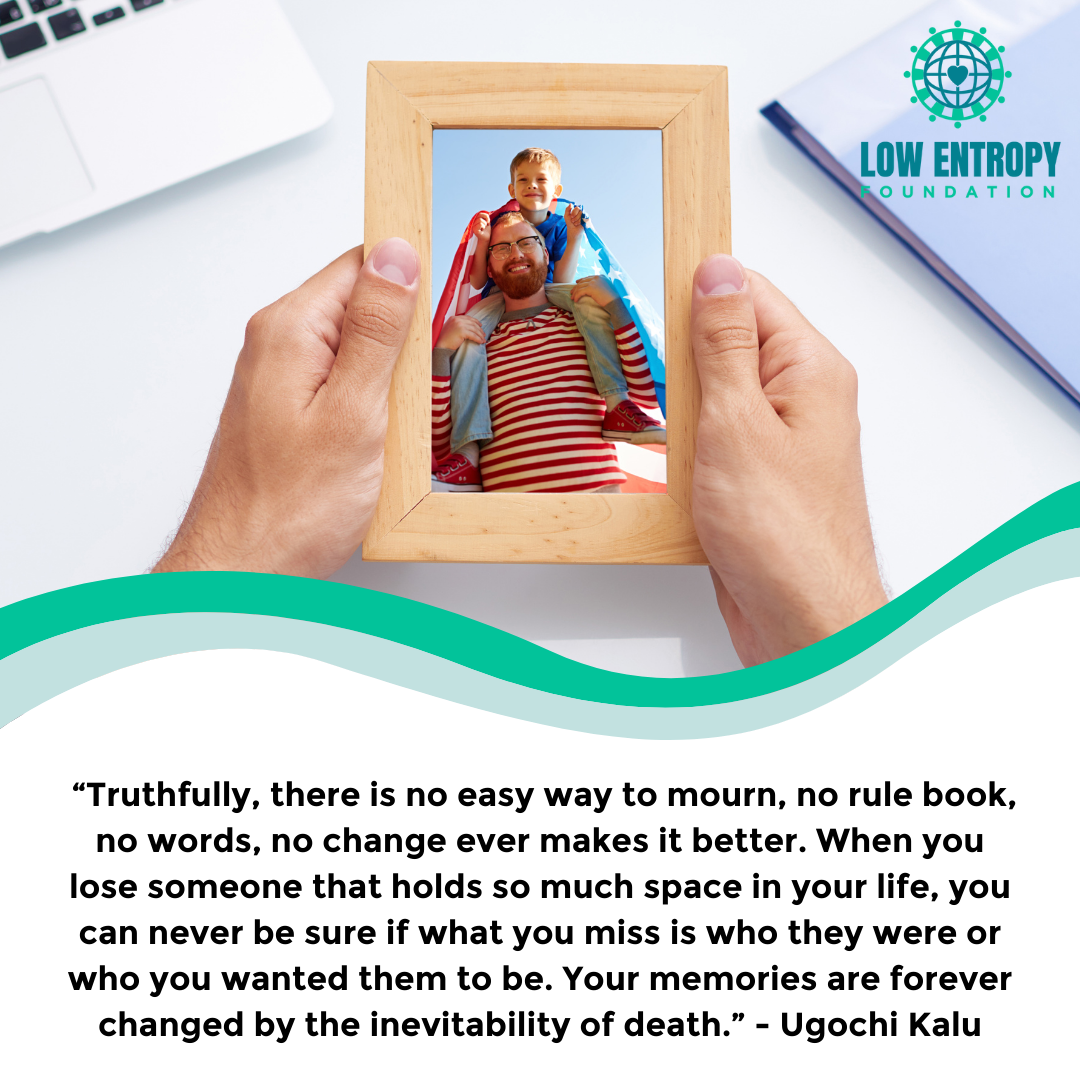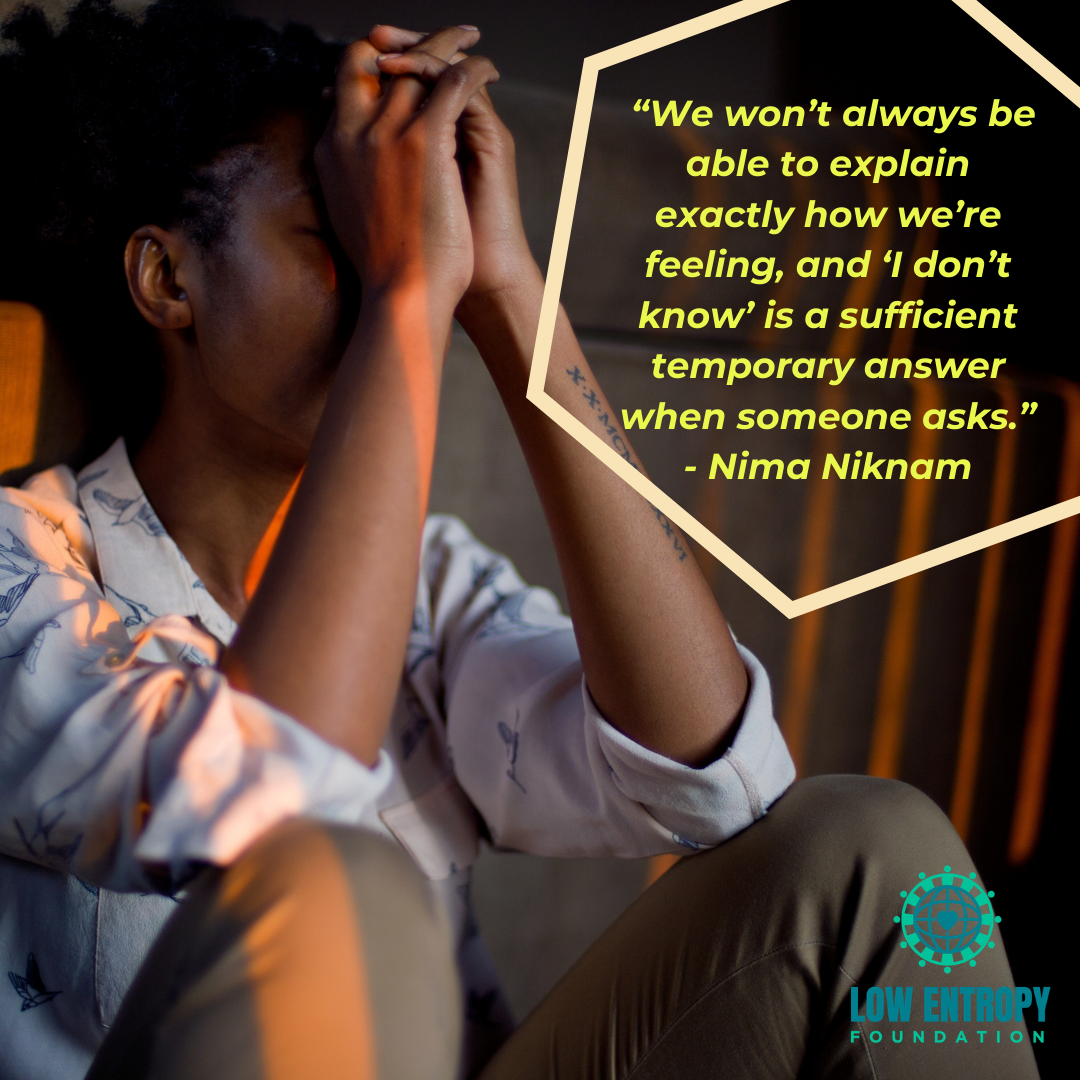The Pain and Struggles of Friendship Breakups
March 24, 2023

Eri Ikezawa (she/her/hers), Low Entropy Volunteer Writer
When last speaking to my therapist, I learned the verbiage “disenfranchised grief.”
This can be defined as the kind of grief caused by an unconventional source, the anguish catalyzed by an occurrence that isn’t typically considered as a sensible reason to justify feeling such sadness. For example, the death of a close loved one or a miscarriage are considered socially acceptable reasons to experience bereavement—which, without question, absolutely are. It is incredibly easy to commiserate with individuals who have experienced this because the situation is unambiguously sad.
On the other hand, the death of a pet or the loss of a job can oftentimes be overlooked by people as a reason to feel the same level of distress.
This causes me to wonder then, who are we to define the parameters of what entails true, profound grief? And then on the flip side, why do we seek permission from others to be “allowed” to be sad?
These are the kinds of questions that have arisen for all the times that I’ve felt deeply wounded by the loss of a friendship.
In a society that heavily emphasizes the importance of romance, it is easy to find an abundance of resources covering the pain that follows a break-up. But from my experience, there is simply not enough support is offered for, in colloquial terms, a “friendship breakup”—the platonic equivalent of a dissolution of a romantic relationship.
Despite all our best hopes, always stoking the fires of a romantic relationship to ensure it works out, there is always the distant awareness that there is a possibility that things may not work out.
But the expectations are set differently with friendships. We almost blindly anticipate things will work out. We presume our most meaningful friendships are eternal—like energy, as per the law of conservation, we expect our friendships to exist forever, always staying consistent. No matter what disruptions or vicissitudes occur in our universe, we take for granted our close friends will always be with us.
To me, my friends are like my family. They are all people whom I treasure, admire, and love with all my heart; every time, I’ve grown distant from a friend or found myself needing to distance myself from someone, I’ve found it brought me great emotional turmoil.
And the thing is, as I’ve gotten to know myself and my habits better as I grow older, I know I need time to process what happens to me and a safe space to vent until my emotions stabilize. But when I am hurting over the loss of a friend, I feel like there is an absolute cap on how much and how long I can talk about it—whereas I feel that there is much greater capacity and patience for people whose romantic relationships ended.
Imagine a rock plastered with barnacles for years—abruptly, they’re abrasively ripped off and shredded from the surface of the boulder. What’s left behind is residual debris from the bits that weren’t removable and a misshapen outline of where the barnacles used to be—a messy reminder of what used to be there.
That’s just a clumsy description of what it felt like the last time I struggled with a loss of a friend—I felt comfortable for only a limited amount of time to vent to my friends about my emotions.
It wasn’t that my friends were impatient with me or demonstrated apathy—in fact, they were all empathetic and understanding. The problem was no matter how much attention and commiseration they provided me with, I just felt like I was somehow missing the key to unlock any semblance of tranquility and acceptance of the status quo.
Finally, I decided—even if I was ashamed or embarrassed about it—I would seek advice from a professional; I was determined to address my sadness head on as soon as possible. I refused to delay the healing process simply because facing my emotions was daunting.
Looking back retrospectively now, I am glad I did so. I felt in speaking with my therapist, I received the validation and gratification in knowing that it is okay to feel sad. It isn’t strange to be heartbroken over the loss of someone whom I had really treasured, adored, and invested time in.
And even if I logically recognized that I didn’t require permission to feel the way I did, I guess I still subconsciously harbored the need to get someone’s stamp of approval that “yes, it is okay to feel sad about this.”
In seeking professional assistance in my journey to reluctant acceptance, she presented me with a gift: “disenfranchised grief.” By providing me with this terminology, it broadened my horizons and alleviated my shame. I felt like I had been given permission to label my sadness
as grief—that even if it didn’t take a conventional shape, it isn’t ludicrous to characterize
that heavy feeling in my chest as “grief.”
Looking retrospectively at the situation, I now truly appreciate how valuable her input and
contribution was. While I am proud of myself for taking the initiative to seek help even for something that I felt I was overinflating in my head, her compassion and feedback is what really set my healing journey ablaze—where my determination was the ember, her assistance was the gasoline.
I recognize now, if anything, my shame and embarrassment for feeling great anguish over the loss of a relationship I invested in was preventing me from ever resolving the turmoil in my heart. I could not arrive at nirvana unless I slowly unpacked the hidden barriers and stared my emotions stark in the face.
Having this newfound perspective on the loss of friendship, I think what I would emphasize most is that it is so okay to feel pain and grief. After all the time, secrets, laughter, and love shared, how could it be anything but natural to feel profound loss?
In writing this, I hope to contribute to the lacking literature to support people who are struggling through the loss of a friend—just because the topic isn’t given the attention it deserves, it doesn’t mean people out there don’t need support. I want them to know that they are not alone, that they will be okay, and that it’s okay to be sad.
–
My name is Eri Ikezawa and I have an extended minor in psychology and a major in linguistics. I’m still on the path to quelling questions about myself and the direction I want to head in, but in the meantime, I have always wanted to find a way to help others and contribute to a community dedicated to personal development and self-love.
GET INVOLVED
At Low Entropy, we believe changing the world starts with changing ourselves.
Founded in 2015, Low Entropy Facilitates conversations that encourage diversity and promote inclusivity.
We understand that life can be confusing at times. It can seem challenging and sometimes you may feel like no one really “gets you.” We offer an opportunity to connect with others who have the capacity to understand you.









